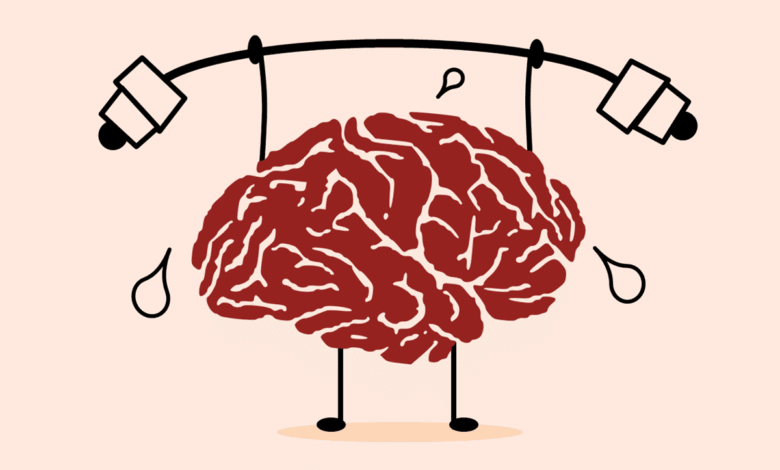5 Daily Habits That Will Improve Your Mental Health in 30 Days

In our increasingly fast-paced world, it’s remarkably easy for mental well-being to take a back seat. We often find ourselves focusing on grand gestures or dramatic life changes, hoping for a sudden shift in our outlook. However, the truth is, profound and lasting improvements in our mental health frequently stem from small, consistent daily habits. Much like nurturing a plant, regular, gentle attention can lead to flourishing growth over time.
Imagine feeling a noticeable shift in your mood, focus, and overall outlook in just one month. It sounds ambitious, but by committing to these five straightforward habits every single day, you can genuinely begin to rewire your brain for greater resilience, calm, and peace. There’s no need for complicated therapies or huge time commitments – just consistent, compassionate effort.
1. The Power of the “Mindful Five” (Just 5 Minutes)
We often mistakenly believe that mindfulness requires sitting cross-legged for an hour, meditating deeply. However, that’s simply not the case. Dedicate just five minutes each day to truly be present in the moment. This could take many forms: perhaps you genuinely savour your morning tea or coffee, noticing the warmth of the mug in your hands, the rich aroma, and the nuanced taste as you sip. Alternatively, you might take a slow, deliberate walk, paying close attention to your feet hitting the pavement, the sounds around you, or the sensation of the air on your skin.

Even simpler, you could close your eyes for a few minutes and simply focus on the rhythm of your breath going in and out. This tiny pause, consistently taken day after day, subtly teaches your brain to slow down, reduces the constant ‘noise’ of everyday thoughts, and gently pulls you away from worrying about the past or anxiously anticipating the future. Over 30 days, these micro-pauses build a powerful habit of presence, which can significantly reduce feelings of anxiety and overwhelm.
READ ALSO: Mistakes that make you look desperate when looking for a job
2. The Daily Dose of Green (Get Outside!)
Our inherent connection to nature is fundamental for mental well-being, yet many of us spend the vast majority of our days cooped up indoors. Make it a non-negotiable part of your routine to get a daily dose of green – even if it’s for a mere 15-20 minutes. This doesn’t mean you need to scale a mountain or trek through a dense forest; it could be as simple as taking a gentle stroll around your local park, spending some quiet time sitting in your garden, or consciously choosing the longer, greener route when walking to the shops.

Exposure to natural light plays a crucial role in regulating your circadian rhythm, which in turn improves sleep quality and elevates your mood. The fresh air and natural surroundings actively reduce levels of cortisol, the body’s primary stress hormone, and simultaneously boost feelings of calm and contentment. Over a month, this consistent, brief interaction with the natural world can lead to a noticeable lowering of stress and a much brighter, more optimistic outlook.
3. The Gratitude Grab (One Good Thing)
It’s all too easy for our minds to become fixated on problems, mistakes, or what didn’t quite go to plan. The “Gratitude Grab” is a deliberate practice of intentionally identifying just one good thing that happened during your day, or one thing you are genuinely grateful for. This doesn’t need to be monumental; it could be something as simple as a friendly chat with a colleague, enjoying a truly delicious meal, a fleeting moment of unexpected sunshine, or the satisfaction of successfully completing a task you’d been dreading.

You can either simply reflect on it mentally or, for added impact, quickly jot it down in a small notebook or on your phone. This consistent practice actively trains your brain to seek out and acknowledge positives, gradually shifting your perspective from one of scarcity to one of abundance. After 30 days, you’ll likely find yourself noticing good things more automatically, fostering a more optimistic and resilient mindset.
READ ALSO: Here are all the ways watching pornography can affect your relationship
4. The ‘Digital Wind-Down’ Hour
Our phones, tablets, and televisions emit blue light that can significantly disrupt our natural sleep cycles, and the constant barrage of notifications keeps our minds perpetually alert and engaged. Implement a strict ‘Digital Wind-Down’ hour before you go to bed. This means consciously putting away all screens (or at the very least, setting your phone to ‘do not disturb’ and placing it out of arm’s reach) for the last 60 minutes of your day.
Blue light disrupts your sleep [iStock]
Instead of screen time, try activities such as reading a physical book, listening to calming music or a relaxing podcast, indulging in a warm bath, or simply having a quiet chat with a housemate or partner. This habit allows your brain to properly disengage and prepare for sleep, leading to deeper, more restorative rest. As better sleep is one of the most powerful levers for improving overall mental health, you’ll likely feel a substantial difference in your well-being within just a few weeks.
READ ALSO: Azonto drops diss track after Medikal snubs compensation demand
5. The “Connection Check-In” (Even a Quick Hello)
Humans are fundamentally social creatures, and meaningful connection is absolutely crucial for our mental well-being. Make it a daily habit to genuinely connect with at least one person. This isn’t about lengthy phone calls or attending big social events; it could be as simple as having a quick, meaningful chat with a family member, sending a thoughtful text message to a friend you haven’t spoken to in a while, engaging in a genuine smile and a sincere ‘How are you, really?’ with a colleague, or making a brief phone call to an elderly relative.
Communicate openly with your partner [Jamaicanscom]
These small, consistent acts of connection actively combat feelings of loneliness, boost your sense of belonging, and serve as a powerful reminder that you are part of a wider, supportive community. Over 30 days, this habit strengthens your social fabric, providing a crucial buffer against feelings of isolation and low mood.
ALSO READ: Breakfast in bed and other romantic gestures that will make your girlfriend happy
Committing to these five simple habits for just 30 days isn’t a miraculous quick fix; it’s the conscious beginning of a profound and lasting shift in your mental landscape. Each habit, when practiced consistently, works to build new neural pathways that actively support resilience, foster calm, and cultivate happiness. You might be genuinely surprised at how much brighter and more stable your mind feels after just one month of consistent, compassionate self-care. Give it a go – your mental health is unequivocally worth the effort.





